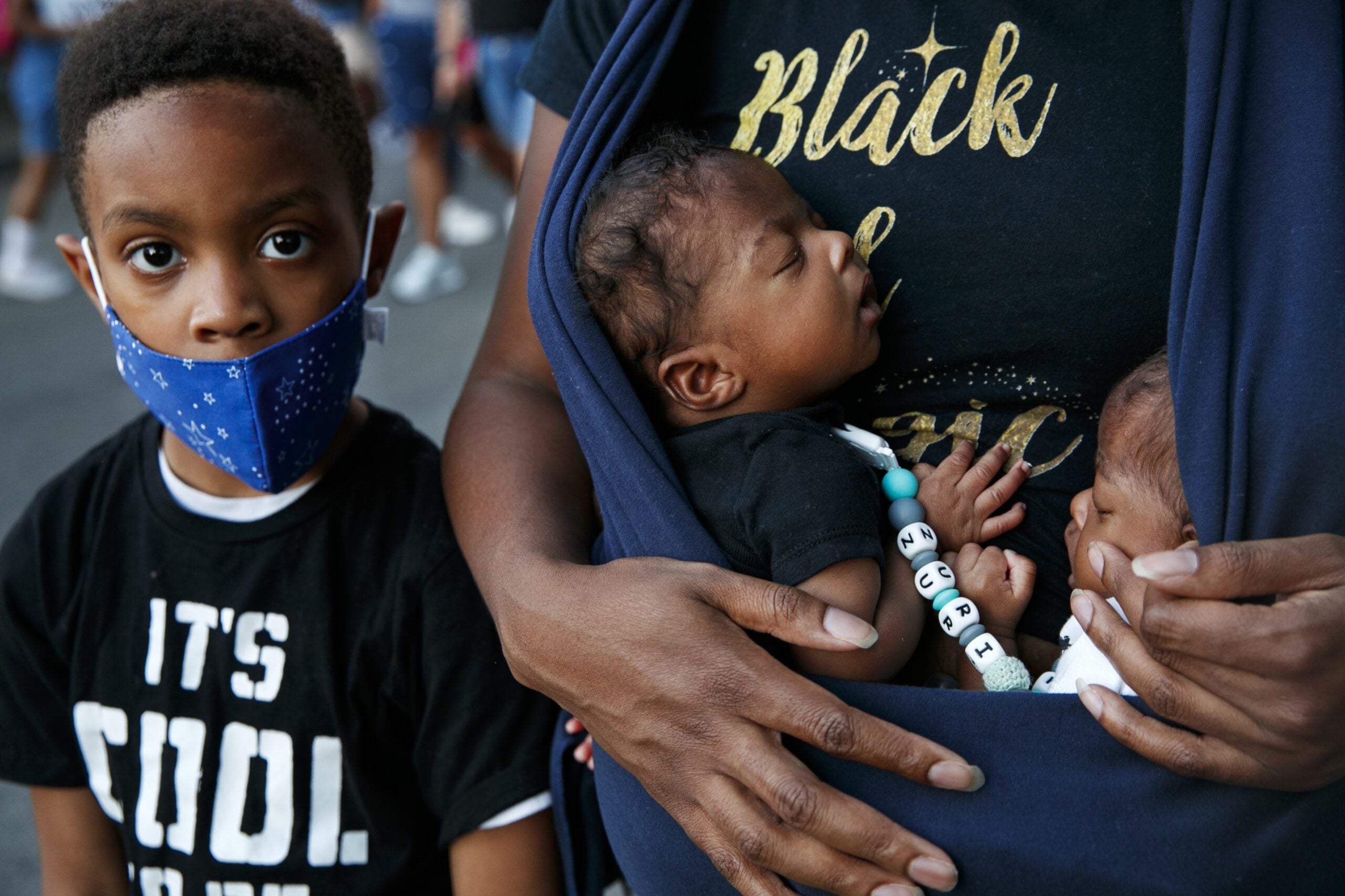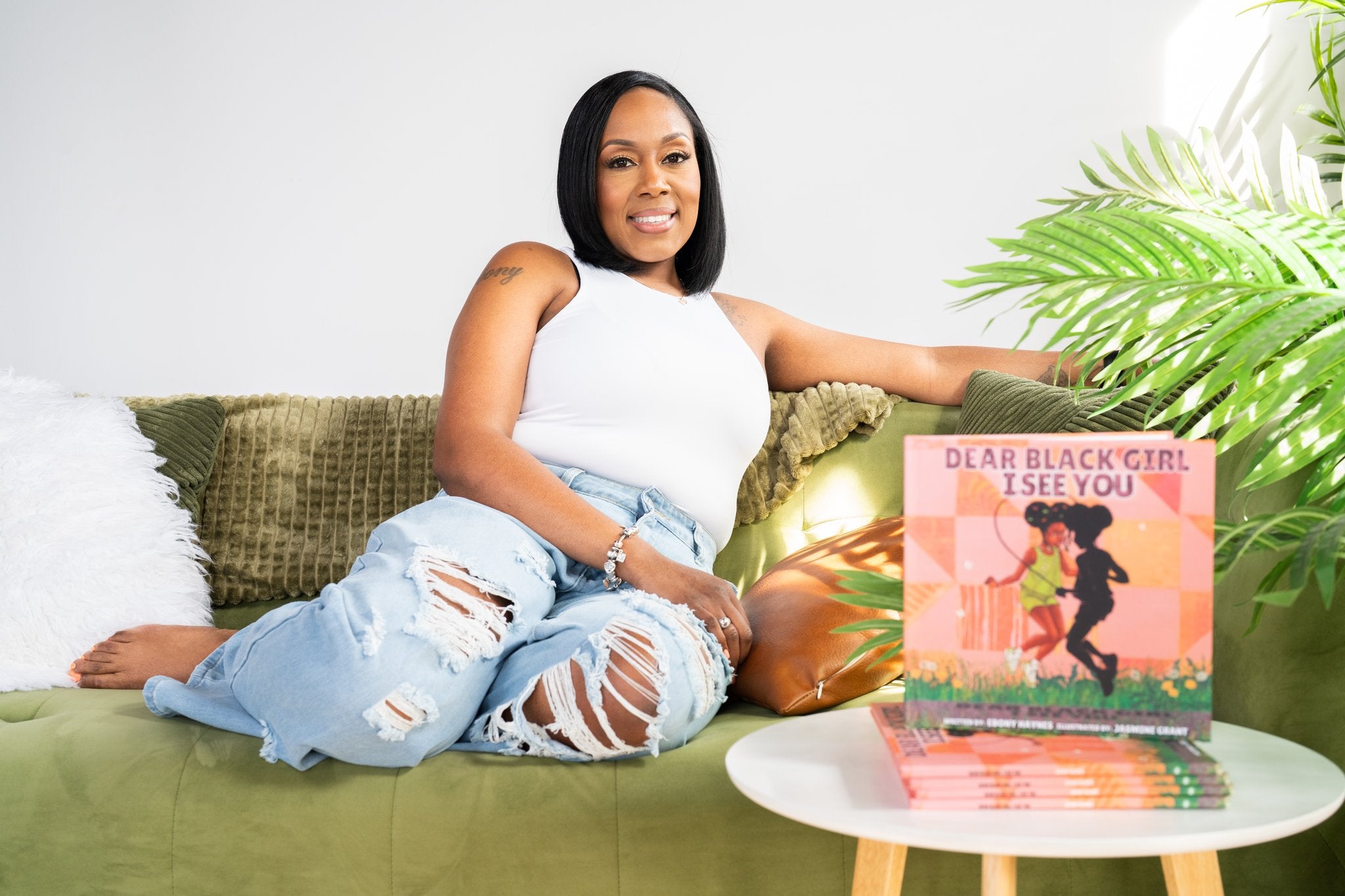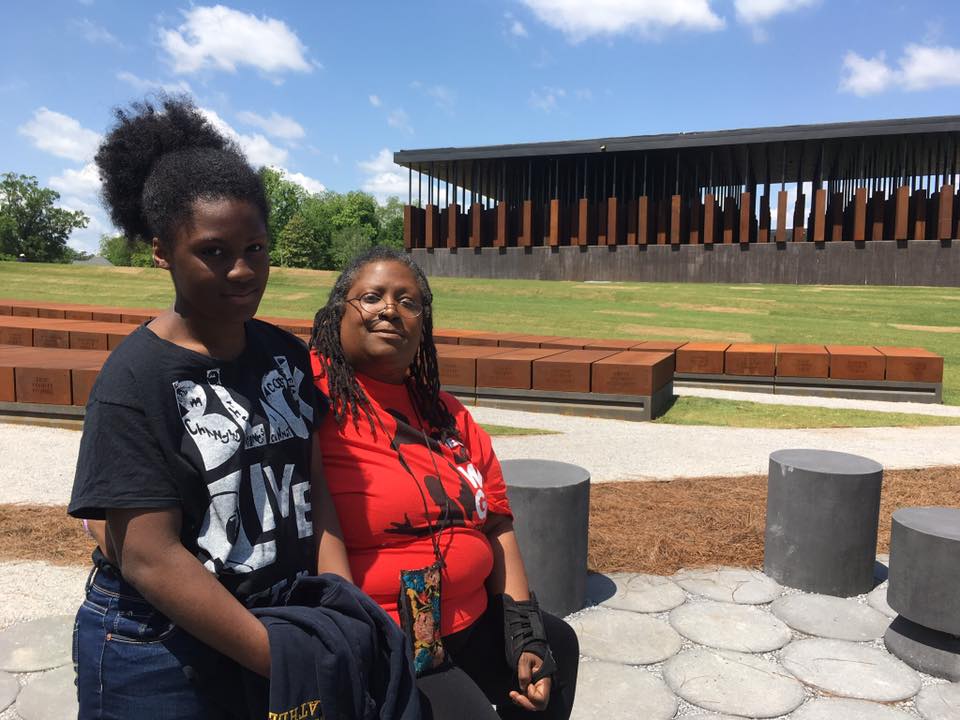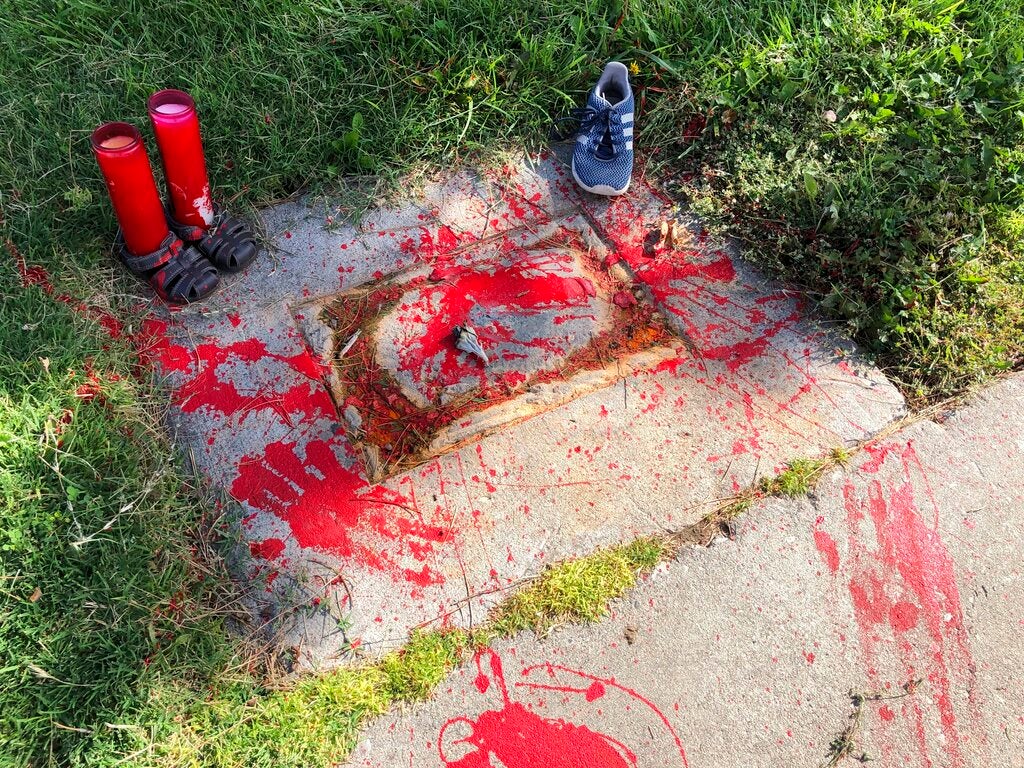Lilada Gee’s 23-year-old son is tall. He has dreadlocks. And each time he walks out of the house, she worries whether he’ll walk back in.
Lisa Peyton-Caire is a mother of five black children — three sons and two daughters between the ages of 13 and 27. Although the death of black Minneapolis man George Floyd — who died while in police custody last month — impacted them all in different ways, they’re united in their feelings of grief.
These Madison moms of black men and women have created “cocoons” of safety for their black children in a world that doesn’t see them or love them as they do. Despite being tired of the fight, they battle on with sometimes daily conversations with their children about how to act in public to ensure their safety.
News with a little more humanity
WPR’s “Wisconsin Today” newsletter keeps you connected to the state you love without feeling overwhelmed. No paywall. No agenda. No corporate filter.
Like mother of seven Jacquelyn Hunt, these women teach compliance. Hunt, who lives in Madison and works as a counselor at FOSTER of Dane County, uses those conversations to explain to her black children how life is different for them compared to their white peers.
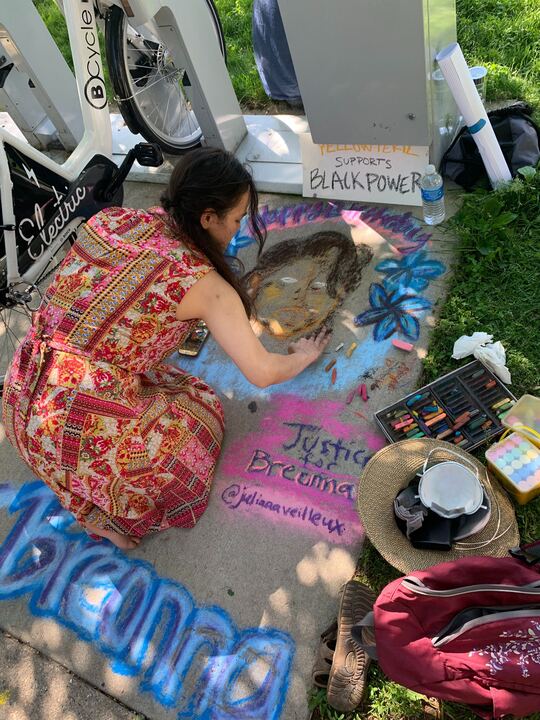
She advises, “If they have to arrest you, just be compliant. Just let me bring you home and we’ll fight later.”
‘Another String Of Atrocities’
Gee, founder of a Madison-based nonprofit Black Women Heal, said that Breonna Taylor’s death at the hands of police is evidence that black people aren’t safe in their own homes. Taylor was struck at least eight times by bullets fired by police after Louisville police officers entered her home on suspicion that two men involved in drug crimes had packages delivered to her home.
“That one hit me even more than George Floyd because that is our greatest fear,” Gee said. “We’ve been killed in our churches, now we’re killed on the streets, and now police are coming in our homes and killing us. There is no safe place now.”
Peyton-Caire said the deaths of Floyd, Taylor, Trayvon Martin, Tamir Rice, Michael Brown and many others is reflective of the nation’s history of violence against black identities.
“We’ve been experiencing this for centuries, and that trauma is within us, within our bodies and our memories,” she said. Peyton-Caire is founding CEO and president of the Foundation for Black Women’s Wellness and served on Gov. Tony Evers’ Health Policy Advisory Council.
Peyton-Caire said people in the black community have their own stories and the stories of their parents and grandparents of being taught about safety and being conscious of every move they make when they leave their houses.
“We are taught that at a young age so that we have a chance of living,” she said.
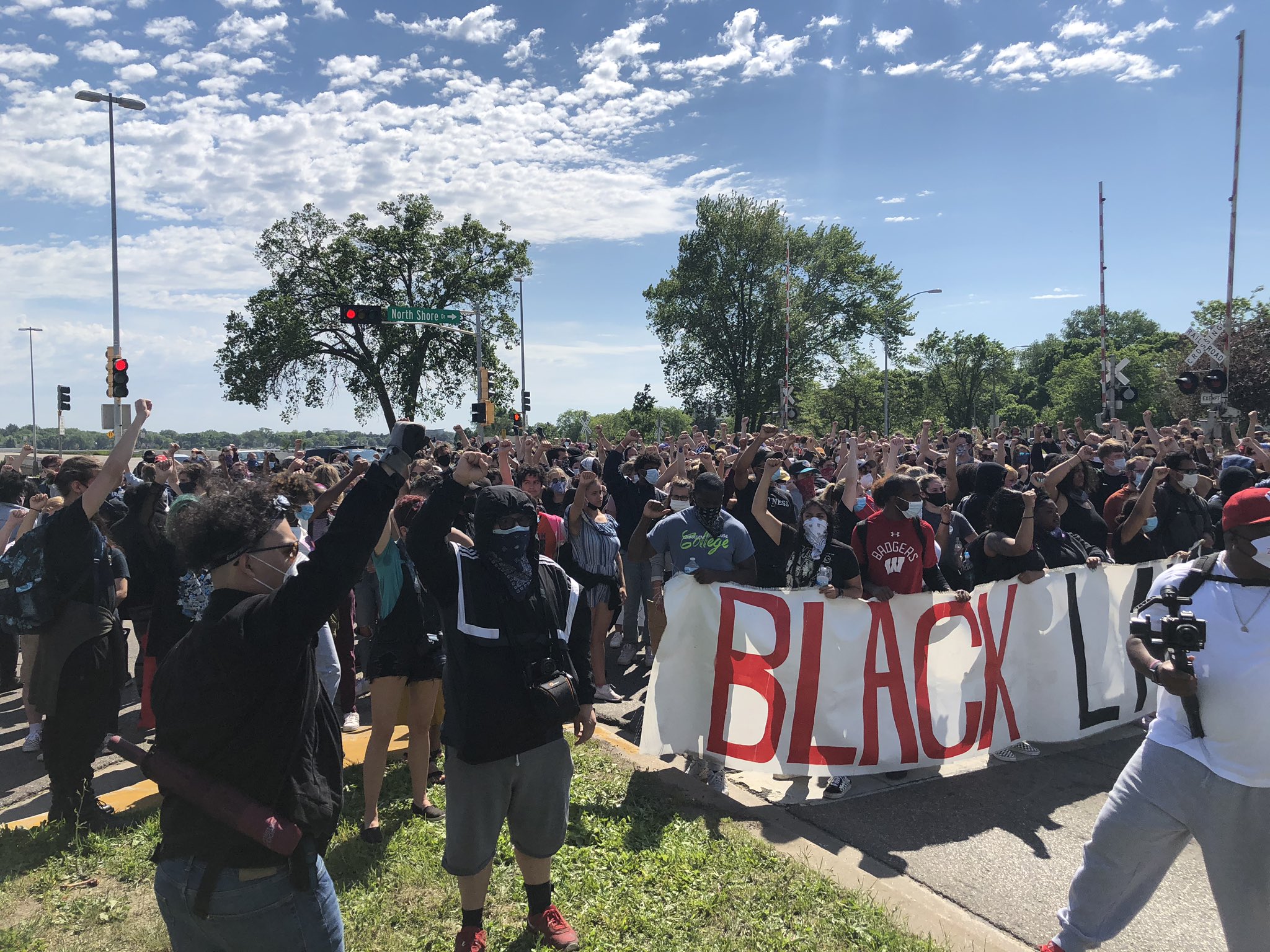
Part Of A Continuum
Hunt said it’s hard to be a parent today, especially a black mom.
Her children are at an age where impulsivity reins. And if they’re in a situation that triggers their trauma — fed by images of black men and women who have been shot or killed that they’ve seen on social media and elsewhere — they respond to fear by fleeing, freezing or fighting.
Hunt said she talks with her children on a weekly, if not daily basis about issues related to policing and staying safe.
Peyton-Caire began those conversations with her son in elementary school.
“They’re groomed at an early age,” she said. “It starts in our public school system, when our children have to interface in a world that is often not welcoming and ready for them.”
Peyton-Caire recalls talking to one of her sons about how he was going to be treated because of his skin color. He was behaving the same way as the other little boys in his class, but for those with his shared skin color, it meant more detention. It meant having to sit outside the classroom by themselves. It meant being told to face the corner as punishment.
“Our sweet, well-loved, self-managing, self-disciplining normal little boys who enter school and are policed because they are viewed differently,” she said.
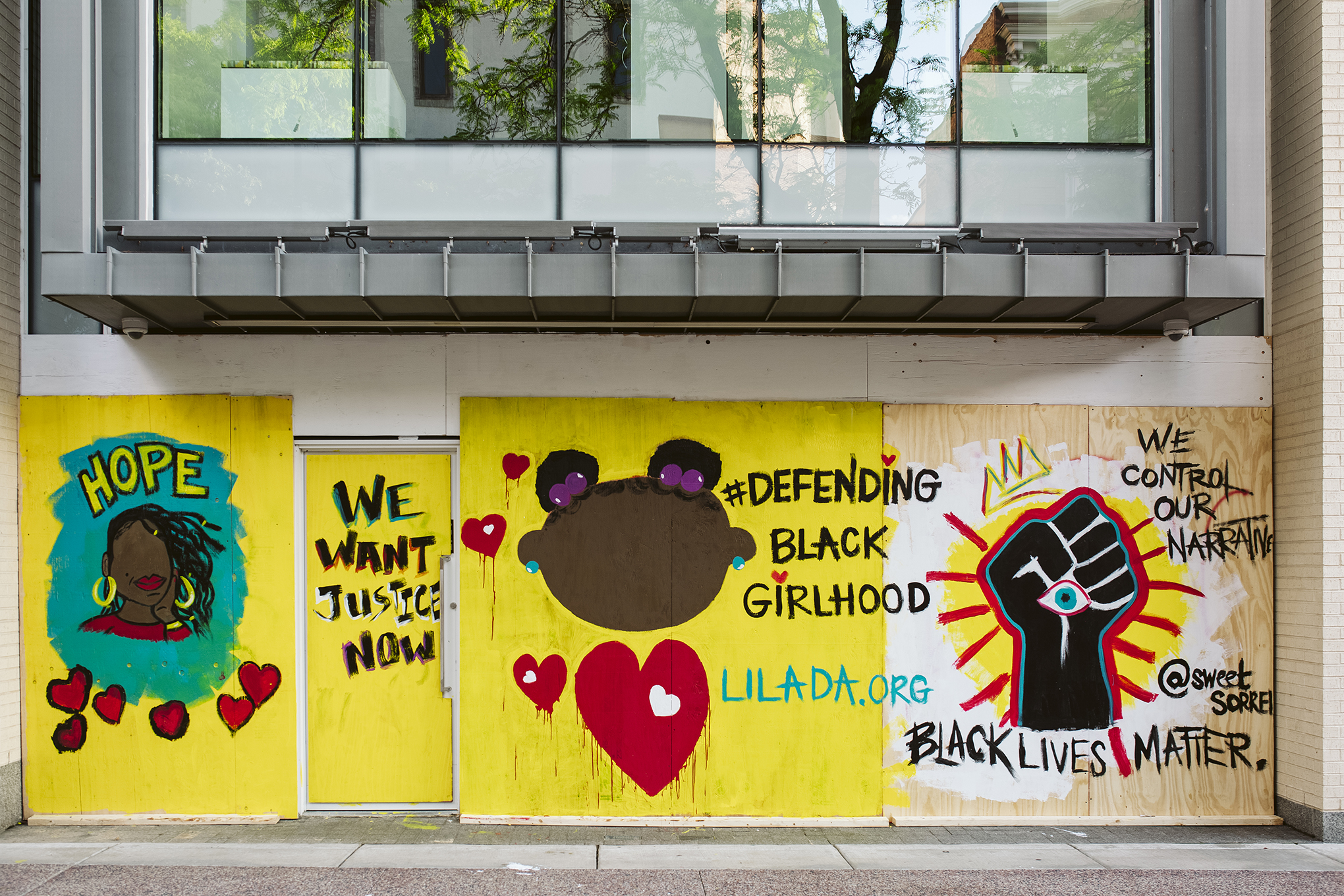
The Trauma Lives On
Peyton-Caire said she feels a continuation of the trauma she’s been experiencing throughout her life when she hears about the violent deaths of black people at the hands of police.
“It put me down for a few days before I could get activated to want to fight and protest,” she said. “It puts you on your back and it’s a continuation of a deep grief, as if it were your brother, your cousin, your uncle, your child — because we share in this collective experience and this pain.“
Hunt said black people are full of trauma and they can’t take anymore. Every black mom is thinking that each of these deaths could easily have been their own children.
Hunt said her children are at a stage in their lives when they are inundated with messaging telling them they have the ability to achieve anything. But she prays that if they are ever in a situation with a police officer that they’ll heed her advice.
“No matter what, don’t argue with people,” she said, as if talking to her children. “People can say whatever they want out their mouth. Let them have it. You don’t have to be right. Just be safe.”
Instead of saturating their children’s childhoods with fear about the world around them, these women are finding ways to lessen racism, educate the public and continue protecting the black community.
For Gee, that includes ending the call for white allies — a term she thinks has become too popularized. She wants white warriors. She wants fighters who will step up and help black people dismantle a corrupt system.
“I need white mothers to be warriors with their children and figure out how they, year after year, child after child, keep raising children who continue this system of racism and oppression,” she said.
But that also means that instead of unlearning racism, white people need to learn how to love, Gee said.
“If that officer loved George Floyd, would he have put his knee on his neck until he died?” she asked, adding “love is what we need. “If you love me, you will treat me right. If you love my child, you will educate my child,” she said. “We make it much more complicated than it needs to be.”
Wisconsin Public Radio, © Copyright 2025, Board of Regents of the University of Wisconsin System and Wisconsin Educational Communications Board.

